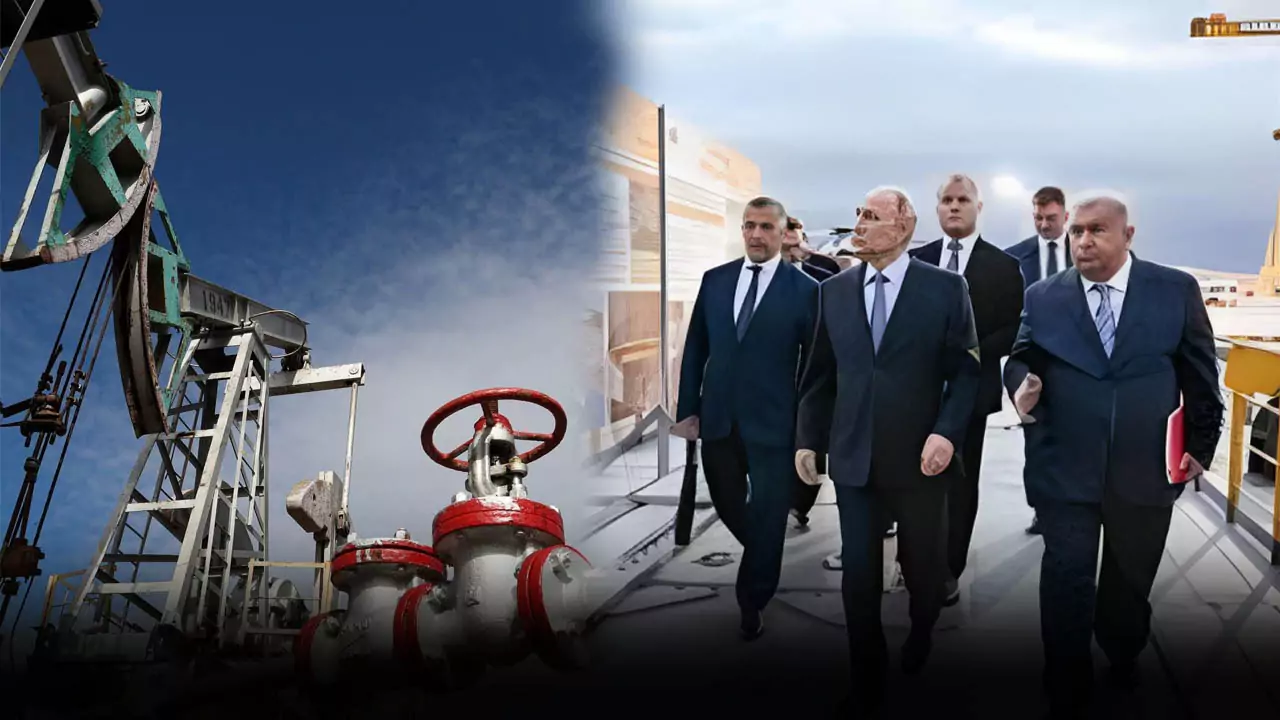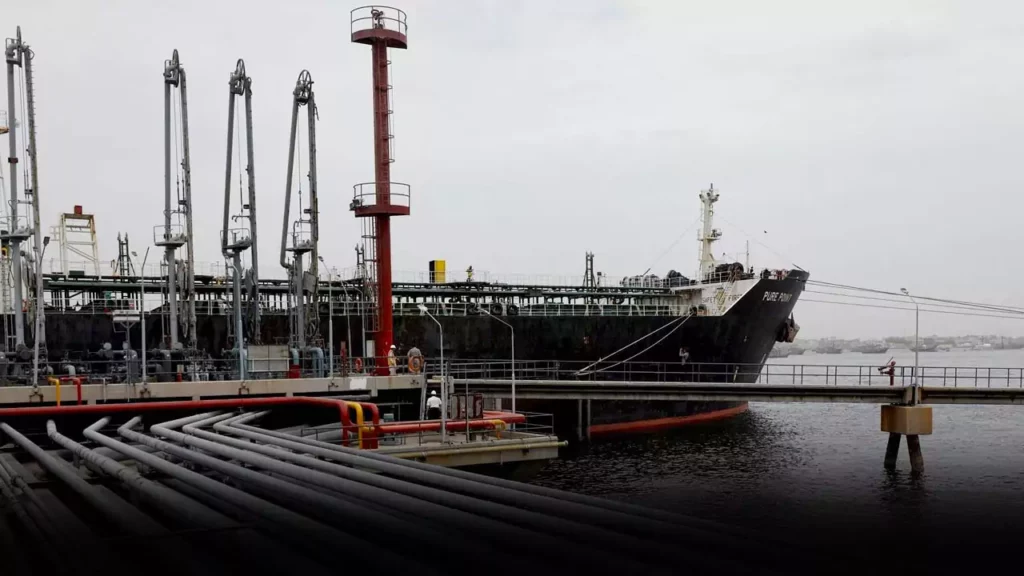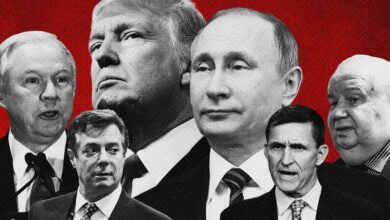The embargo on Russian oil has not succeeded. Did they ever intend to be efficacious?

The sanctions put in place by the West a year ago haven’t really affected Russia’s ability to wage war.
In an attempt to starve the Russian war machine into submission over its invasion of Ukraine, the European Union banned the importation of Russian crude oil last December.
It looks like the ban was a failure a year later. According to the Kyiv School of Economics (KSE), which keeps tabs on Russian oil sales, Moscow is expected to earn $178 billion this year and possibly $200 billion the following year from oil sales.
These figures are less than the record $218 billion Russia made from oil exports in the first year of the conflict, when Europe was still purchasing roughly half of the country’s oil exports, but they nonetheless demonstrate how swiftly Russia has made up for the lost revenue.
Russia must now transport its oil across far greater distances. It basically leaves just China and India, which lowers competition and drives down prices, according to Jan Stockbruegger, a researcher at the University of Copenhagen’s Ocean Infrastructure Research Group.
not by much, though. According to the KSE, the average price of Brent crude in October was $90.78, which was not too far below the $84 per barrel that Russia’s benchmark Urals crude traded at.
Sanction-proof Russian oil tankers

The EU and the G7 imposed a $60 per barrel price cap on Russian oil sold to third parties last year in anticipation of this. The EU made this bold and unprecedented attempt to impose its will outside of its borders at a time when Western-owned and Western-insured tankers were still shipping the majority of Russian oil.
However, since then, Russian organizations have assembled a shadow fleet outside of Western control by purchasing a large portion of the fleet’s aging component from Western businesses at prices that are enticingly higher than scrap metal.
According to Stockbruegger, an Al Jazeera correspondent, a shadow tanker is “typically a tanker that does not have Western or G7 involvement, in terms of ownership, insurance, finance or any other services.” “It’s essentially a tanker that is sanction proof.”
Between April and October, Western protection-and-indemnity-insured tankers reduced their trade in Russian crude by two thirds, while a shadow fleet tripled that trade to 2.6 million barrels per day during that time.
The KSE claims that at least 187 shadow tankers are moving Russian petroleum products, including refined crude.
The KSE claims that even if the price cap was lowered to $50 per barrel, Ukraine’s Western allies could still reduce Russia’s oil revenue by more than half and by 25%, respectively, if the embargo and price cap were strengthened.
Moscow, though, is placing a wager that they won’t.
Vladimir Putin, the president of Russia, approved a 70 percent increase in defense and security spending to $157.5 billion for the upcoming year on November 27. The $412 billion Russian budget as a whole is 13% more than it was the previous year due to increased oil earnings expectations.
According to economist Maria Demertzis, a senior fellow at the Brussels-based Bruegel think tank, enforcing a price cap would always be challenging.
” How can one stop a Gulf nation from purchasing and selling energy to other nations? It’s really hard to keep an eye on,” she remarked.
An additional challenge was political will.
According to Demertzis, 50% of the world’s population either supported Russia or remained neutral at the start of the invasion.
“Any assistance that the [EU or] G7 would have needed to try to enforce sanctions just wasn’t there,” she told Al Jazeera, “as this was an indication that countries were not prepared to cut their economic ties to Russia.”
‘Token’ measures

There are indications that the G7 and the EU are taking the price cap enforcement more seriously.
By sanctioning two tankers for using US-based services in October—the first enforcement of the price cap—Washington may have been the one to cut the price of Russian crude by $3.
After learning that three more tankers flying the Liberian flag were routinely transporting Sokol crude from the far east of Russia to Indian Oil Corp., Washington imposed sanctions on them last month.
According to reports, the EU proposed last month for Denmark to be able to inspect and stop Russian oil tankers passing through the Danish straits, which is a chokepoint that ships from Russian Baltic ports have to pass through in order to get to the Atlantic.
But Stockbruegger thinks these kinds of gestures will stay symbolic.
He told Al Jazeera, “The simple fact is we need Russian oil on the market.”
“If it is stopped, inflation will soar and oil prices will rise globally. In the event that gas prices in the US increase considerably, [Joe] Biden will not be victorious in the [2024] election. Thus, the sanctions are in place to guarantee that Russian oil reaches international markets,” he stated.
Data released by the Institute of International Finance (IIF) last month indicates that during the conflict in Ukraine, China, India, and Turkey significantly increased their imports of Russian crude and may be transshipping crude or refined goods to markets in the West.
Go-between usage in sanction evasion has been previously documented. Chief economist Robin Brooks of the IIF also showed that over the course of two years, German automakers had increased their car and spare part exports 55 times to Kyrgyzstan, seven times to Kazakhstan, and four times to Armenia.
It is clear that Moscow will receive this shipment because this export boom coincided with Russia’s invasion of Ukraine. Brooks posted on X, formerly Twitter, saying, “This has to stop.”
Can renewables fill the gap?
Moscow’s sales to Europe are actually and permanently declining in one particular way.
According to London-based think tank Ember, in the first ten months of this year, wind and solar power produced a record 28 percent of Europe’s electricity, a six-point increase over the same period last year. In the production of electricity, they have long since surpassed coal and natural gas, whose consumption decreased by 15% and 30%, respectively, this year.
“Using solar or wind energy to generate electricity is still far less expensive than using nuclear or fossil fuels.” Beatrice Petrovich, a senior energy and climate analyst at Ember, told Al Jazeera that this is the reason they are gaining market share.
For a continent that paid between $1 trillion and $2 trillion more in energy imports in the first year of the conflict in Ukraine than it did in 2021, this is welcome news.
According to Petrovich, “Europe is better prepared than last winter.” “This is the most effective insurance against volatility and price increases.”
Positive news also for Europe’s 2030 goal of a 55% reduction in greenhouse gas emissions from 1990 levels.
However, it does not reduce Russia’s income.
“It is extremely concerning if India and China fail to perceive the point that we are attempting to make,” Demertzis stated. “Now that their center of gravity is in the east, they can pursue their feelings about anything.”
Stockbruegger stated, “We always talk about how we support Ukraine in terms of how many weapons and how much ammunition we give them.” However, we never discuss it in terms of how strictly these sanctions are being applied. And by that standard, we actually have very little support in Europe.







